Pulling back the curtain on recital season
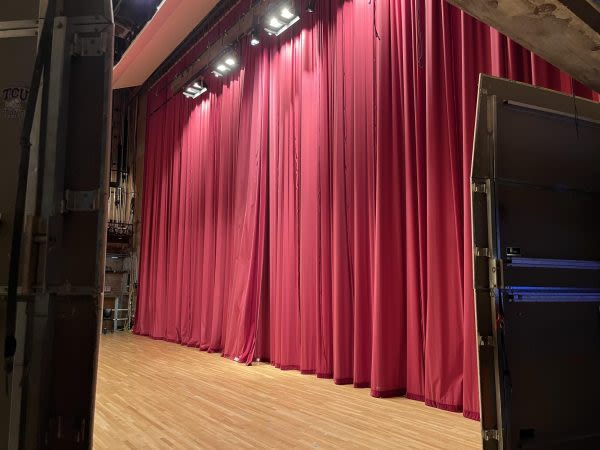
From April 1 to May 1, student workers, faculty, audio engineers and stage managers worked to put on 85 student recitals and more than 20 faculty and guest artist recitals, ensemble concerts and festivals.
Without Nita Ferrell, Alex Moore and Amanda Goodwin, TCU's three concert halls would be a whole lot quieter.
Ed Landreth Hall and Auditorium
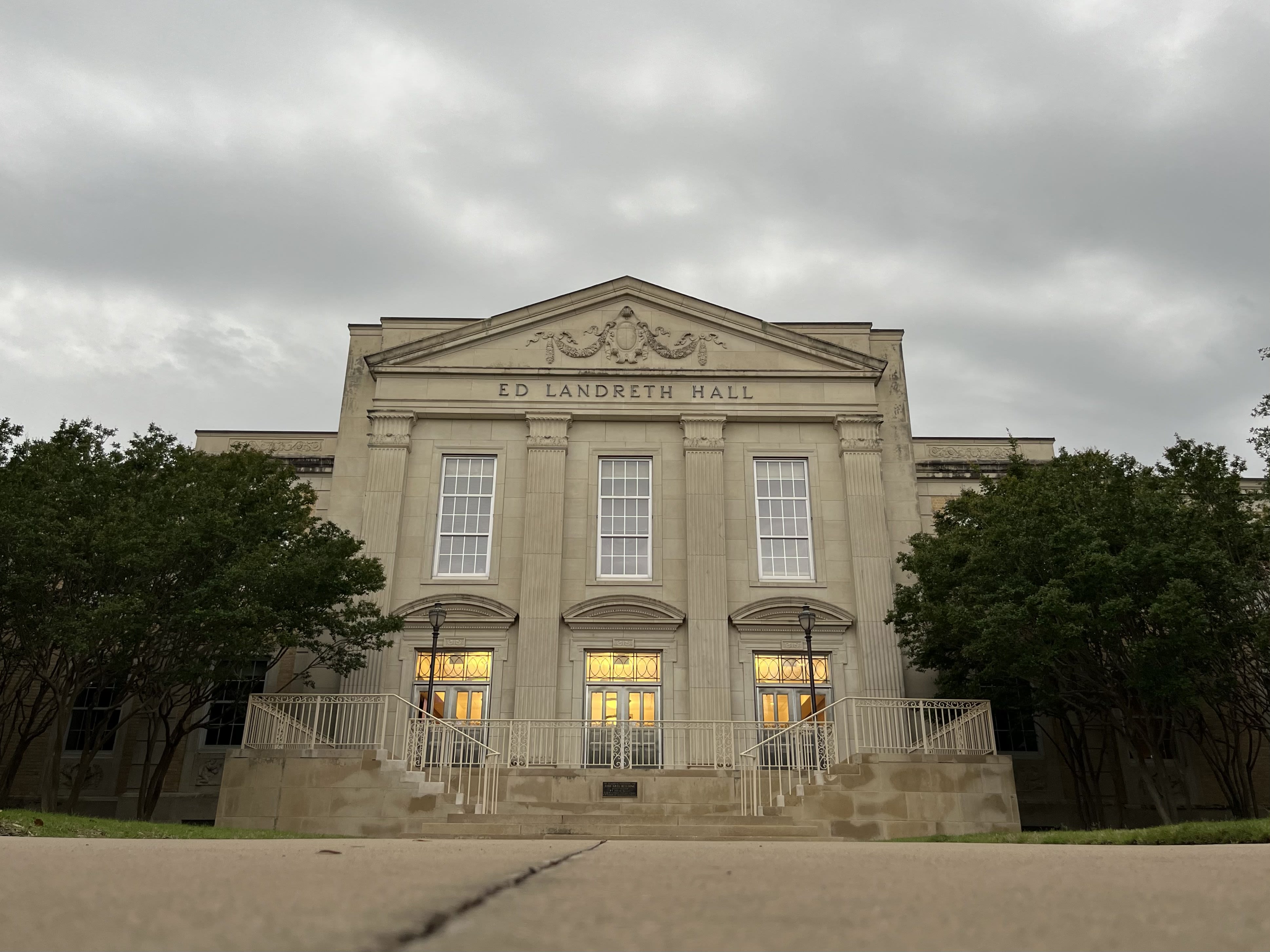
Ed Landreth Hall and Auditorium was built in 1948. The auditorium seats 1,200 and was the original home of the Van Cliburn International Piano Competition. (Caleb Gottry)
Ed Landreth Hall and Auditorium was built in 1948. The auditorium seats 1,200 and was the original home of the Van Cliburn International Piano Competition. (Caleb Gottry)
PepsiCo Recital Hall
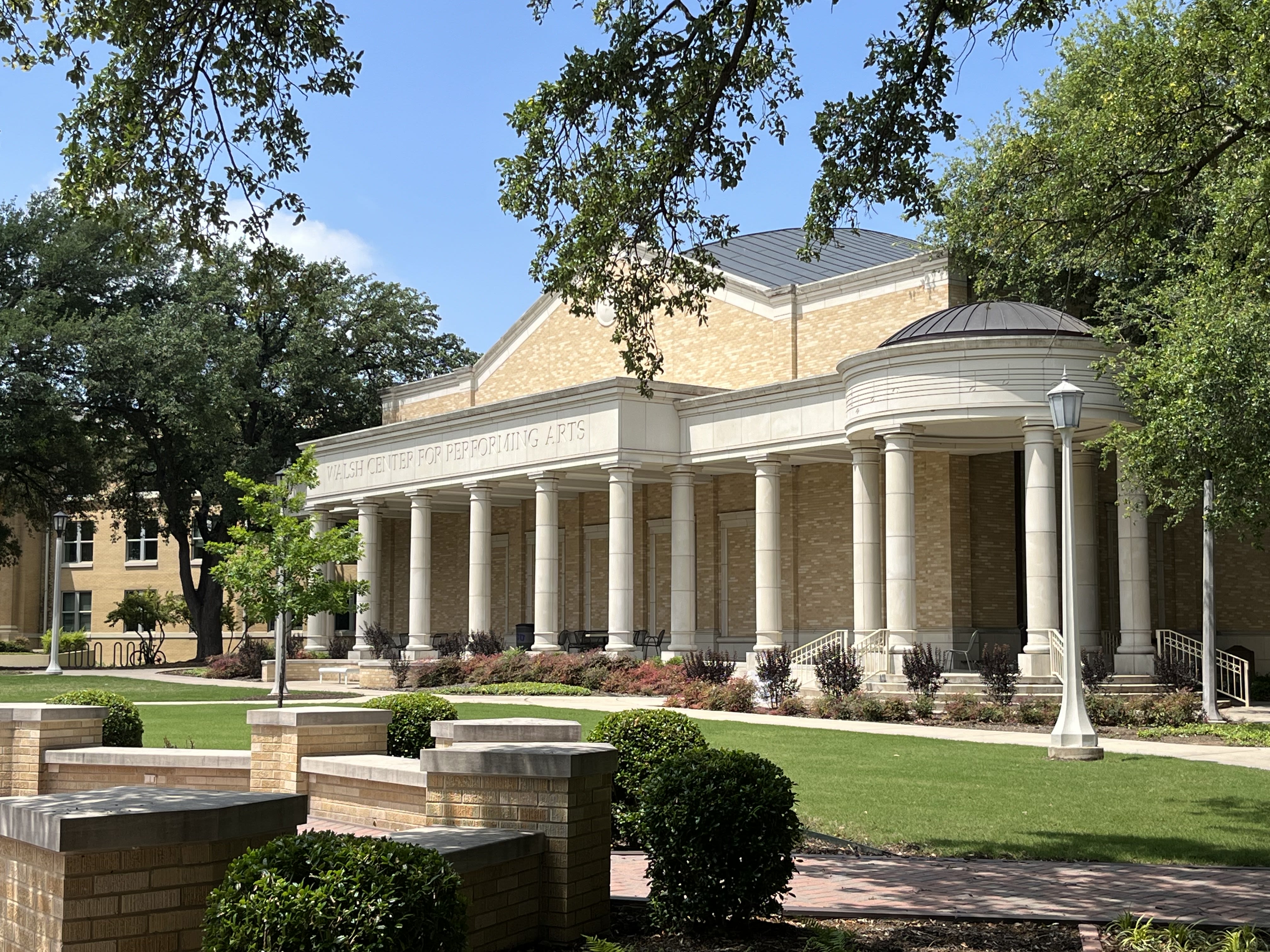
Pepsico Recital Hall, located in the Mary D. and F. Howard Walsh Center for Performing Arts, was built during Chancellor Tucker’s tenure from 1979-1998. (Caleb Gottry)
Pepsico Recital Hall, located in the Mary D. and F. Howard Walsh Center for Performing Arts, was built during Chancellor Tucker’s tenure from 1979-1998. (Caleb Gottry)
The Van Cliburn Concert Hall
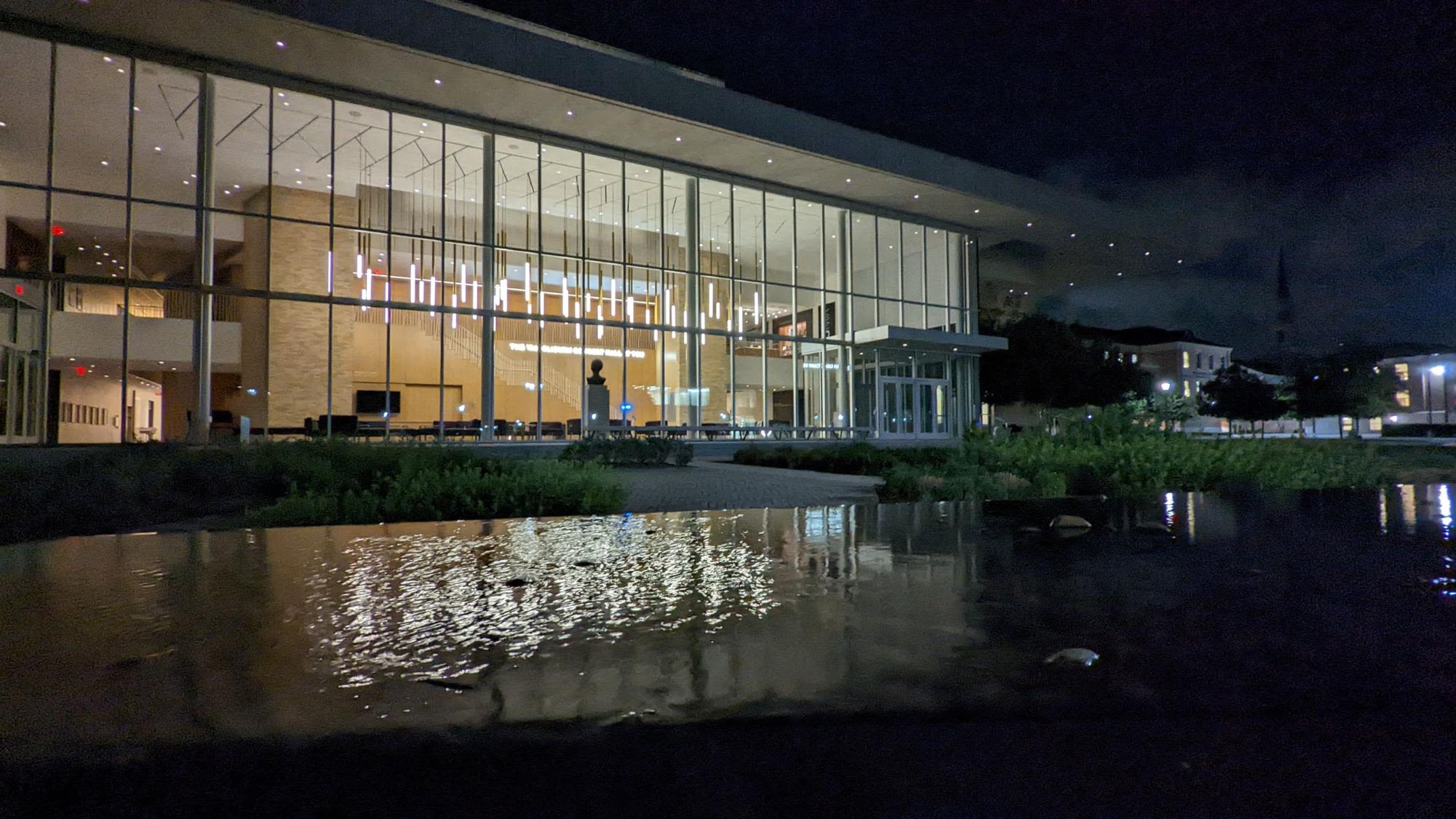
Most recently, the Van Cliburn Concert Hall, located in the TCU Music Center, hosted its first performance in the spring of 2022 after supply chain issues delayed construction during the COVID-19 lockdown. (Kyle Cornelison)
Most recently, the Van Cliburn Concert Hall, located in the TCU Music Center, hosted its first performance in the spring of 2022 after supply chain issues delayed construction during the COVID-19 lockdown. (Kyle Cornelison)
“Rows and rows of the finest virtuosos”
There were over 200 undergraduate students enrolled in the School of Music in fall 2023, according to TCU Institutional Research.
Nearly every major has recital requirements senior year; music performance majors must perform a recital their junior and senior year.
Nita Ferrell, the administrative assistant for the TCU School of Music, schedules everything.
Before COVID, students, accompanied by their professor, had to come to Ferrell's office to register.
“On Monday morning, when it was first opened up every semester, literally, I would walk to my office and there would be a line of students wrapped around because they wanted to hurry up and get in,” Ferrell said.
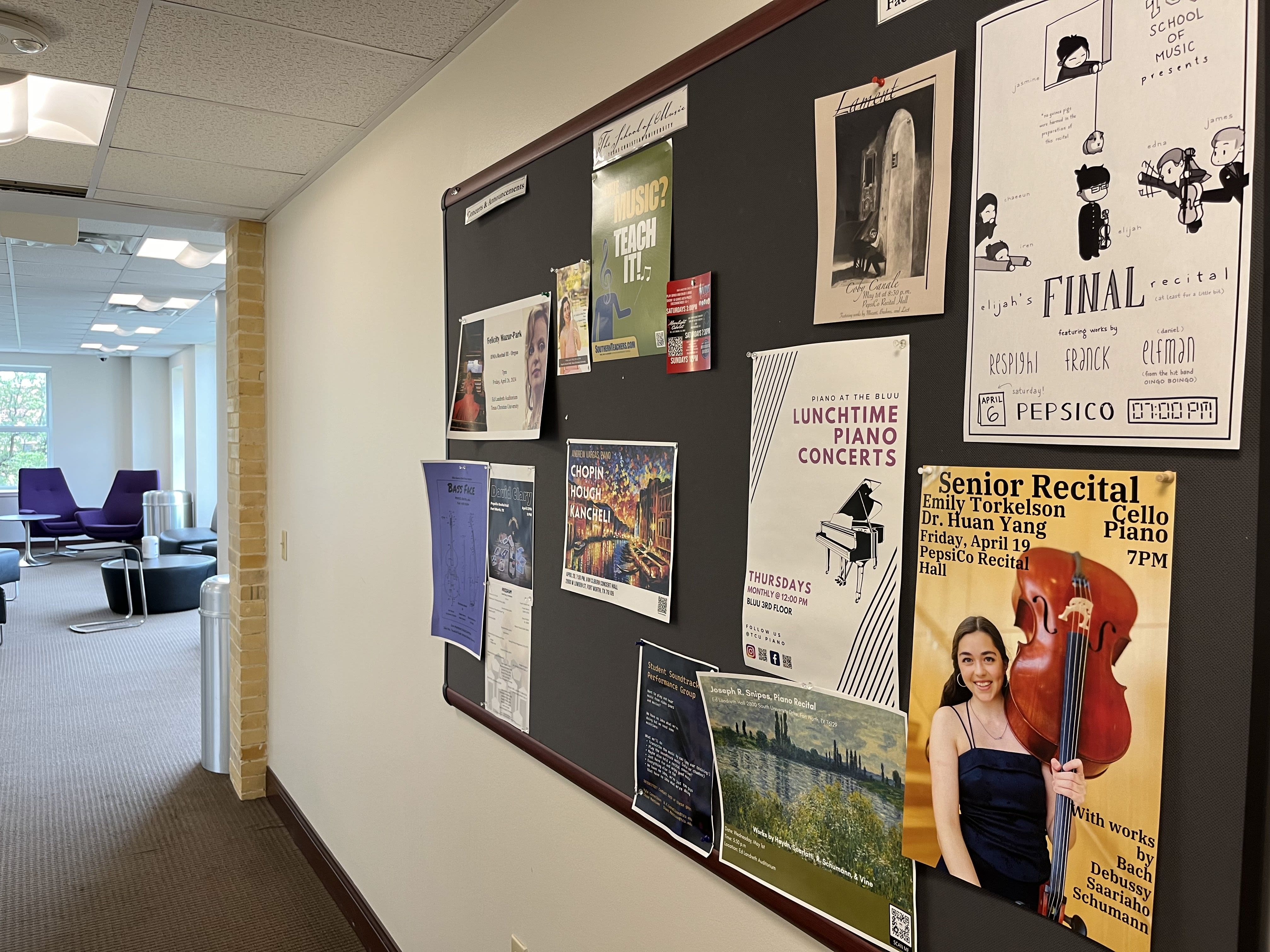
Now, the process is online, but for Ferrell, it’s no less busy as she schedules nearly 60 recitals the first week of the application opening. She said that they do their best to honor one of the student’s top three preferences for hall and time, but sometimes that is just not possible.
“It’s kind of our older students that kind of drag their feet and wait to schedule when they could’ve been the first ones,” Ferrell said. “They just kind of know and sometimes they just take what they can get.”
In addition to scheduling student recitals, Ferrell is also responsible for scheduling every other event that takes place in one of the three main performance venues.
These events include recital dress rehearsals, faculty or guest artist recitals, ensemble performances, organ lessons and even pinnings for the TCU nursing school.
“Fort Worth ISD has done a big promotion day and graduation for their middle school,” Ferrell said. “Fort Worth Symphony Orchestra, Fort Worth Opera – I schedule all those outside groups as well.”
She works closely with stage managers Corey Hale and Amanda Goodwin to ensure the feasibility of getting the venue ready in time for different events.
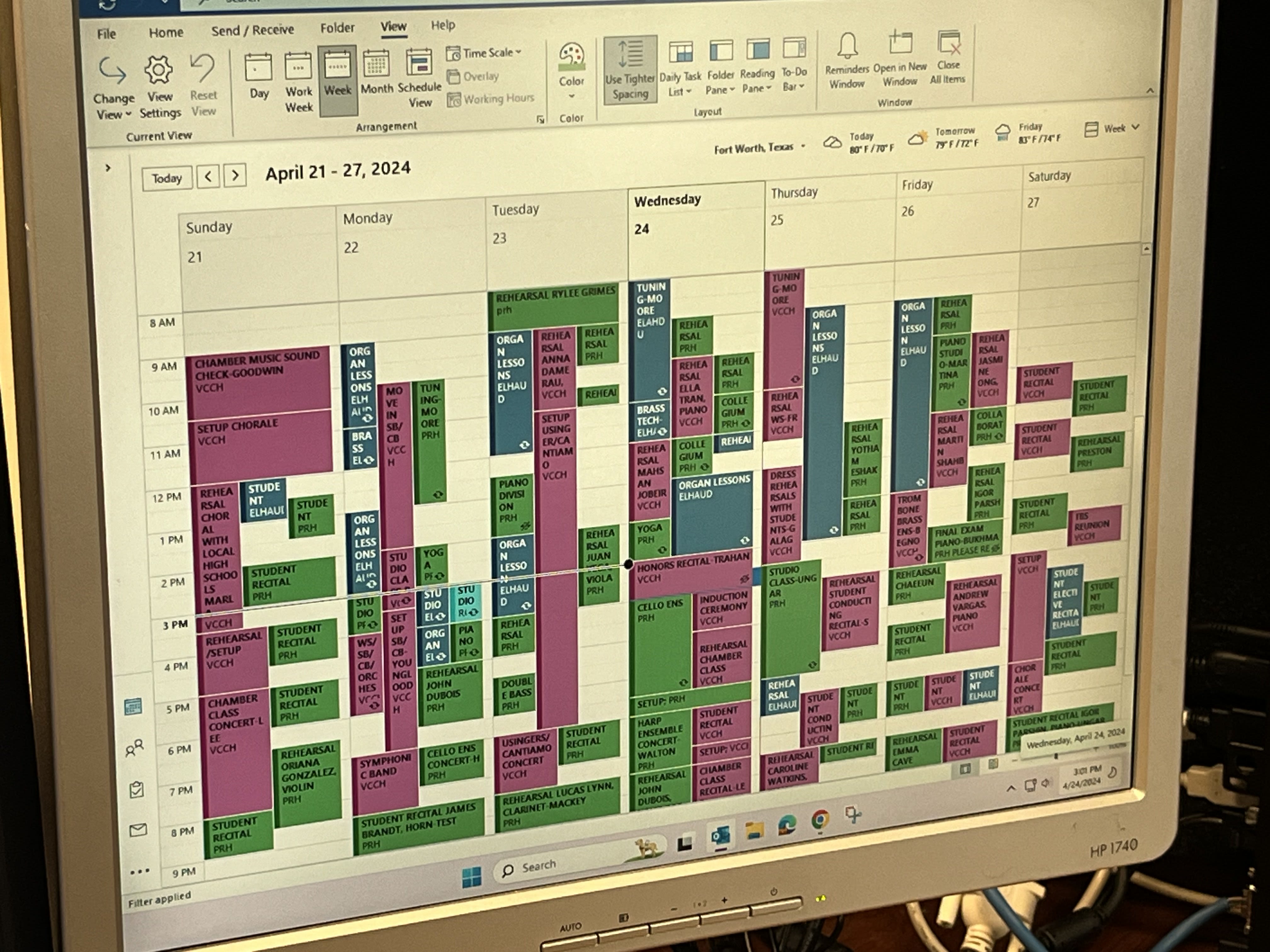
“Sing us a song, you’re the piano man”
One of the necessities for most solo student recitals is piano accompaniment.
Moore, TCU’s chief piano technician, is responsible for preparing the instruments to be performance ready.
His job involves adjusting the inner workings of the pianos to eliminate excess friction and maintain a quality, balanced tone.
“Then tuning is probably the most important thing, because if the tuning is not good, then it hinders everything else,” Moore said. “One metaphor I heard somebody say, 'is it’s sort of like if you’re looking through glass, you need it to be smudge free before you can get a clear picture,' so tuning is that.”
Each of the three venues has two Steinway pianos: one from the factory in New York and one from the factory in Hamburg, Germany.
“Yeah, that's a desirable combo, because then you have two different options,” Moore said. “Pianists can choose which one suits their program and their tastes and their mood sometimes. They can be unpredictable, a little bit what they might like.”
TCU is lucky to have German Steinways as they are rare to come across in America, Moore said. He said having both helps mitigate the challenge of needing a piano that is bright enough to sound over an orchestra and mellow enough to not overpower a vocal soloist.
Moore’s tuning schedule changes based on when the pianos aren't being played, but he said he has a consistent three hour time slot per week in each hall.
“And then depending on what recital is happening where and if I think the pianos are going to change, then I'll work with Nita to find when other available time slots are,” Moore said. “Downtime is time where you can do more substantive maintenance with the instrument.”
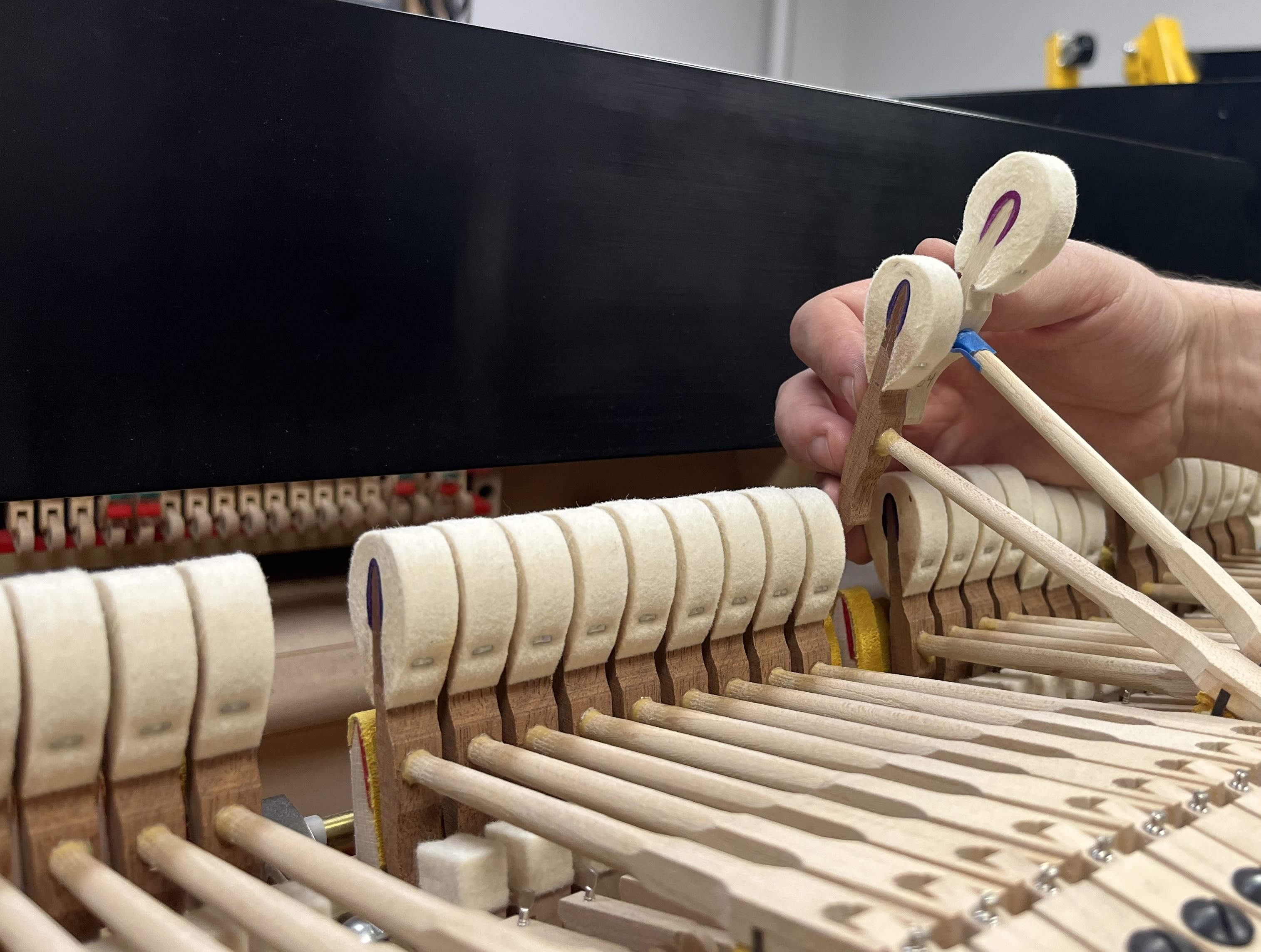
Right now, Moore is replacing much of the inner workings of one of the PepsiCo pianos. It should be ready to go by the fall.
For less significant maintenance, Moore has data loggers that read the humidity and temperature of each hall that signify to him when pianos may have fallen out of tune.
“And at this point, I can tell by what the weather forecast is, what's going to change,” he said.
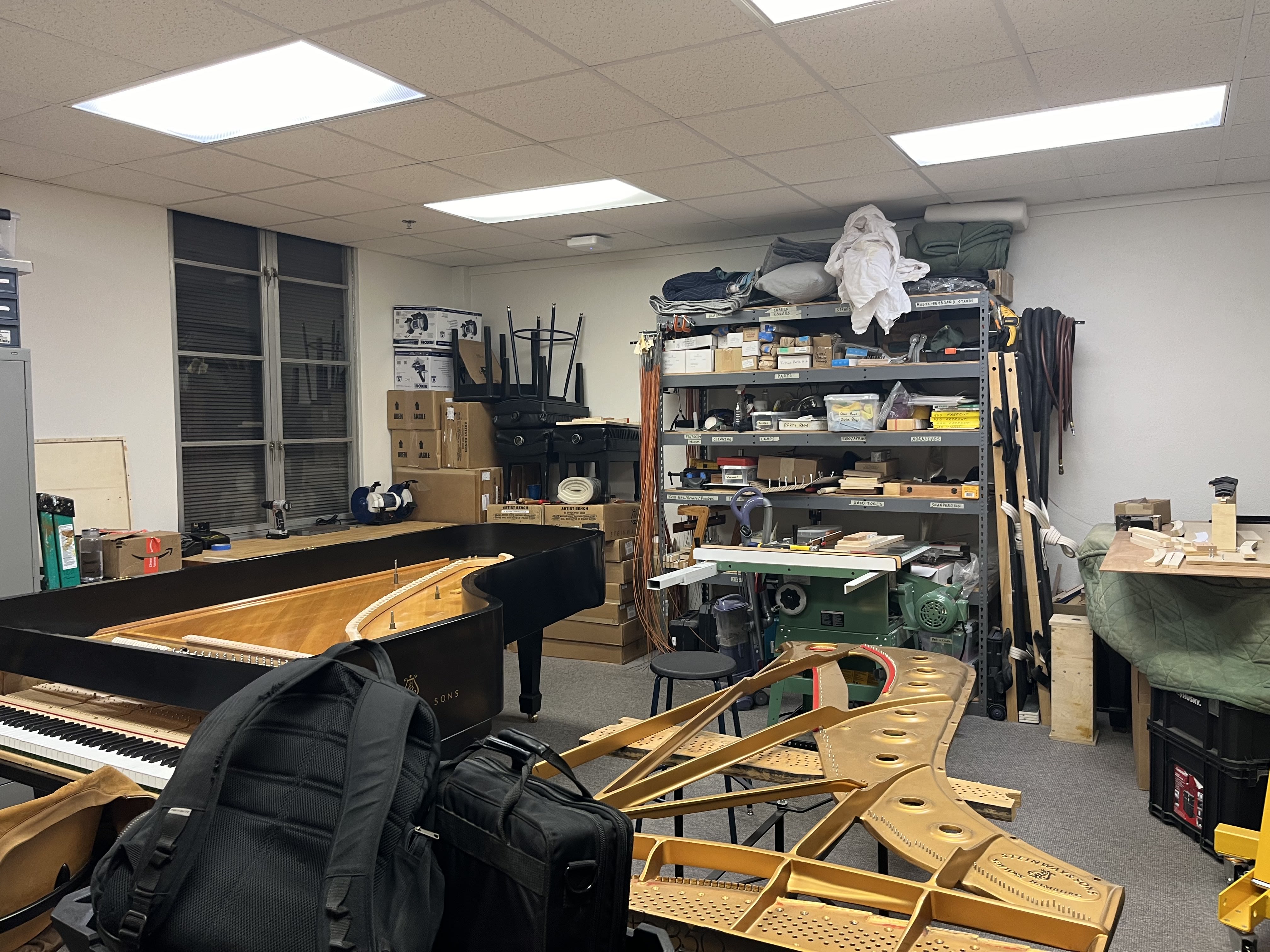
“I'm a thousand miles away, but, girl, tonight you look so pretty”
Every performance in all three halls is livestreamed, garnering hundreds of views in the short time the livestream is available to the public.
Paul Cortese, the assistant director for operations, sets up the livestreams on the TCU School of Music YouTube page. Then student workers ensure audio and video are recorded for every concert.
Each hall has multiple cameras, allowing for panning, zooming and multiple different camera angles for a single performance.
“It's actually a pretty complicated system,” said Amanda Goodwin, the technical director of the TCU Music Center. “When I was first hired, I was really impressed with how well some of the students really took to it.”
For some performances, the school still brings in professionals like Scott Probst, a local audio engineer and small business owner. Probst often mixes the livestream audio for the TCU Jazz Ensembles as well as occasionally working with students on recording projects.
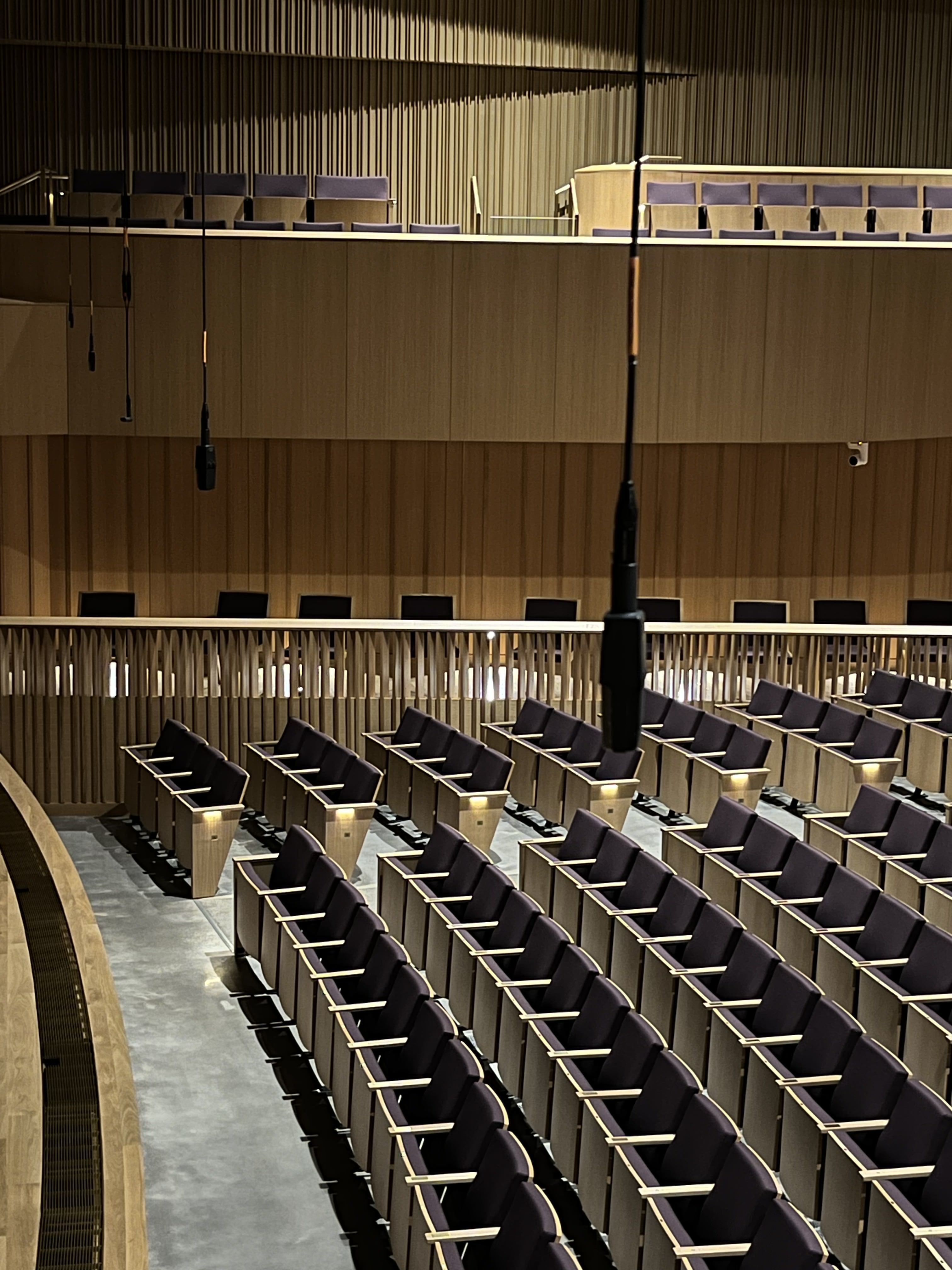
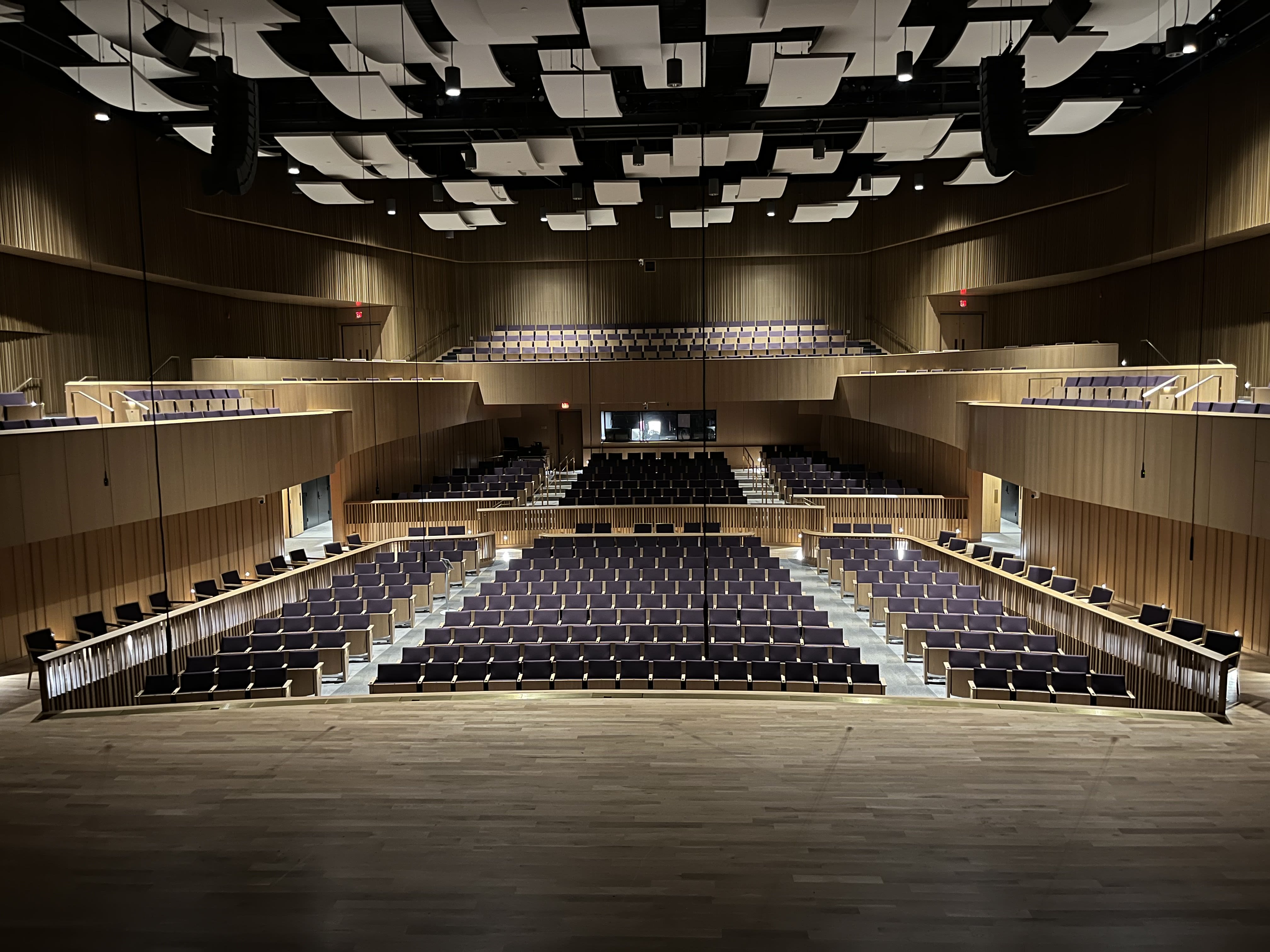
“Woah, listen to the music”
The piano is tuned, the recital is scheduled, but someone still has to make sure the piano is wheeled out onto the stage, the hall is ready and the livestream video is rolling.
Goodwin is one of the most recent additions to the behind-the-scenes team for the TCU School of Music — her position didn’t exist last year.
Part of her job is to reach out to students and faculty to see what setup they need for their performance in the Van Cliburn Concert Hall. Then, TCU Stage Manager Corey Hale assigns student workers to the job, some who are already very busy with final projects and exams, Goodwin said.
The hall is so new, the department is still figuring what works best.
“Part of my job is to also figure out what's wrong and either the best solution for it or really what I have been doing a lot is reaching out to other companies that work specially with audio equipment or lighting equipment or whatnot,” Goodwin said. “And I’ll have them come out and look and help solve problems or help recommend solutions.”
Right now, she is working with professionals to improve the lighting in the hall. Last semester, retractable curtains along the wall were installed to help change the acoustical sound of the space for different-volume ensembles.
While the Van Cliburn Concert Hall has been internationally acclaimed for its acoustics, PepsiCo Recital Hall is the most requested hall for recitals, Ferrell said.
Seating only 325 compared to the Cliburn’s 717, it provides students with a more intimate, familiar and less intimidating performance space.
“Each of the halls have a very distinct sound,” Ferrell said. “So when a student wants to do a recording, you would think maybe PepsiCo would do better or you think Van Cliburn because it's so brand new, but actually, the best recordings come out of Ed Landreth.”
She said that one of the professors calls the acoustics of Ed Landreth Hall magic, because it shouldn’t sound as good as it does.
The hall is also the only performance space with a humidity control system, which helps keep the pianos in tune.
“The music center and PepsiCo are the volatile ones and Ed Landreth is the stable one,” Moore said. “I haven't given up hope that there is something we can do to get a little more the temperatures stable in the new hall, but the humidity moves a lot.”
Three concert halls… 31 days… 85 student recitals
The School of Music ranks in the top 5% of the country for music majors, coming in third in Texas, according to College Factual.
The TCU Music Center, which houses the Van Cliburn Concert Hall, was built to accommodate the growth of the school, but a hall is not much use if it never hears any music.
“It's crazy crazy, but, you know, it is what it is,” Ferrell said. “We're blessed to have as much going on as we have. I mean, that's all I would say is I don't think some people realize how busy we really are.”



